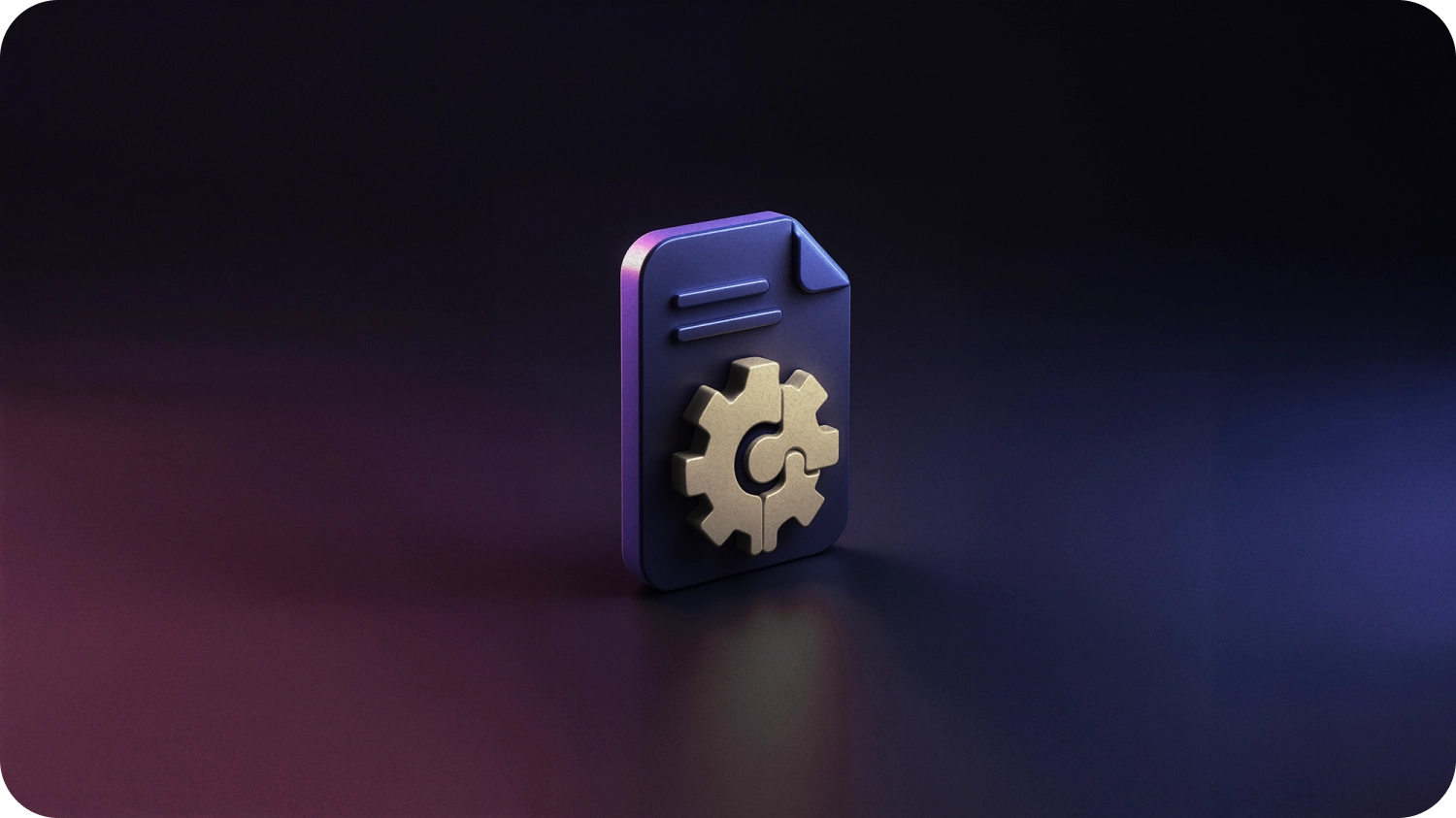Sales teams in 2026 face mounting pressure to hit ambitious targets in unpredictable markets. Yet most reps still aren’t getting the sales coaching they need to improve consistently, which is why AI sales coaching is becoming a critical lever. Only 26% of sales professionals receive weekly one-on-one coaching, leaving the majority without structured support or feedback.
Sales managers, juggling too many responsibilities, often don’t have the time to coach consistently or effectively. When coaching does happen, it’s usually reactive, sporadic, or disconnected from the rep’s actual performance gaps. Companies that manage to implement structured coaching programs report up to 32% higher win rates compared to those without formal systems in place.
This is where AI steps in. It’s no longer a future concept. AI is now powering always-on coaching systems that give sales reps real-time feedback and targeted practice.
From intelligent conversation analysis to simulated buyer roleplay, AI sales coaching platforms are enabling reps to develop faster while giving managers the visibility and leverage to scale coaching across the team.
Early adopters are already seeing the benefits. In organizations where coaching is embedded and enhanced by technology, teams report up to 19% higher productivity and stronger quota attainment year over year.
This guide breaks down what AI sales coaching really looks like in 2026, what it solves, and how to use it to develop a more skilled, confident, and consistent salesforce. From onboarding to deal execution, from call feedback to ongoing skill development, we’ll look at how AI helps organizations coach smarter and scale better.
Whether you lead a global sales team or run enablement at a scaling SaaS company, you’ll come away with the frameworks and examples you need to operationalize modern, data-backed coaching.
Why Traditional Sales Coaching Isn’t Enough Anymore
Many sales organizations intend to coach their teams. But most fail to deliver coaching in a way that sustains performance growth. Several structural gaps make traditional sales coaching unreliable.
A 2025 industry survey found that only 40% of sales reps receive consistent coaching from their managers. When coaching is irregular or shallow, feedback often comes too late after deals are lost or quotas are missed. That reactive model fails to catch recurring skill gaps early, and reps rarely get the support they need when it matters most.
Even in companies that offer coaching programs, most struggle to embed it into routine workflows. One-off feedback, generic advice, or SKO roleplays cannot substitute for deliberate skill development tied to real selling moments.
Specific breakdowns in traditional sales coaching include:
- Coaching happens inconsistently. Some reps go weeks or months without a single meaningful coaching session.
- Feedback lacks actionable detail. Advice tends to stay vague or conceptual rather than pointing to real calls, behaviors, or skills.
- Coaching is reactive rather than preventative. Managers intervene after performance issues surface instead of diagnosing and correcting early.
- Manager capacity is limited. Sales leaders often prioritize pipeline, forecasting, hiring, and closing deals, leaving little time for structured coaching.
These constraints create a ceiling on team performance. Reps plateau. Coaching quality varies from manager to manager. Ramp time for new hires remains long. And top performers succeed in spite of the system, not because of it. Traditional coaching is no longer built for the complexity, speed, or scale required in modern B2B sales.
What Is AI Sales Coaching?
Unlike traditional coaching that relies on manager availability or subjective recall, AI coaching systems evaluate real sales interactions, live calls, recorded meetings, or simulations and generate precise insights, practice scenarios, and behavioral guidance. These systems help reps improve on specific, high-leverage actions that impact deal outcomes, such as surfacing urgency, handling objections, or closing loops.
AI sales coaching turns coaching into a continuous, embedded layer within the sales workflow. Every rep receives targeted input based on how they actually sell. No guessing, no waiting, no one-size-fits-all sessions.
5 Core Components of AI Sales Coaching
While different tools offer varying features, the most effective AI coaching systems share a few core functions that enable continuous development and manager visibility.
1. Generative Guidance
AI uses large language models to suggest better phrasing, sequencing, or responses after calls or meetings. For example, it may recommend a stronger way to position pricing, reframe an objection, or open a discovery conversation. Some tools also help generate personalized follow-up messages based on what was discussed.
2. Conversation Intelligence
AI captures and analyzes sales conversations, identifying patterns in rep behavior and linking them to outcomes. It measures talk time, question depth, objection coverage, and next-step clarity. Managers and reps receive structured insights like, “Deals with no pricing conversation in the first two meetings have 40 percent lower close rates.”
3. AI Roleplay Simulations
Reps can practice common or high-risk sales scenarios with AI-generated buyer personas that respond contextually. These virtual personas simulate tone, resistance, curiosity, or skepticism, depending on the chosen scenario. Reps receive feedback on their delivery, pacing, word choice, and content relevance after each session.
4. Skill Assessment and Scoring
AI evaluates reps across core competencies like discovery, negotiation, messaging, or objection handling. These scores update over time based on performance in real calls or simulations, giving managers a clear view of each rep’s development trajectory.
5. Personalized Learning Paths
Based on observed gaps, the system recommends bite-sized learning modules, playbooks, or targeted roleplays. A rep struggling with value articulation might receive a case study breakdown followed by a practice simulation. Progress is tracked and adapted continuously.
Together, these components create a closed feedback loop. Reps practice, perform, and receive feedback in context. Managers coach with visibility, not assumptions. And organizations build a more consistent, scalable system to develop selling skills in the field.
6 Benefits of AI-Powered Sales Coaching
AI sales coaching isn’t a marginal improvement over traditional methods. It solves long-standing coaching challenges by introducing consistency, personalization, and data-backed insight at scale. Teams using AI coaching tools report sharper execution, faster onboarding, stronger win rates, and a more resilient pipeline.
Here are the core benefits, with practical implications for revenue teams:
1. Consistent, On-Demand Coaching
AI provides feedback whenever a rep needs it. No more waiting for a manager’s calendar or relying on informal call reviews. Reps can review their performance right after a call or practice session and apply the insight to the next one. Coaching becomes timely, contextual, and repeatable.
Scenario: After a complex discovery call with a manufacturing prospect, Priya receives an AI-generated summary and performance feedback within minutes. It highlights that she didn’t explore the prospect’s current pain points in enough depth and suggests three follow-up questions she can use in her next conversation. She adapts immediately for her next call, booked the following day.
2. Personalized Skill Development at Scale
AI adapts coaching to the individual. A new hire struggling with discovery receives different prompts and exercises than a seasoned rep refining late-stage negotiation. This level of precision is nearly impossible to deliver manually across large teams. AI makes tailored development accessible to every rep.
Scenario: David, a first-year AE, is having trouble with early-stage qualification. His AI coaching tool flags low discovery depth scores across several calls and automatically assigns two short roleplay simulations focused on uncovering budget and timeline. Meanwhile, senior rep Elena is receiving targeted feedback on stakeholder alignment and proposal framing in complex deals.
3. Objective, Data-Driven Feedback
Instead of vague comments like “that call felt off,” AI uses actual conversation data to surface concrete issues. It might flag that a rep failed to cover budget, talked through objections, or didn’t confirm next steps. This precision drives better coaching conversations and faster behavior change.
Scenario: In a deal review, the AI flags that Marcus consistently fails to confirm next steps on second calls. His manager hadn’t noticed this pattern. With data to back it up, they set a goal to close every meeting with a clear action item and track progress together. Within a month, Marcus’s mid-funnel conversion rate improves by 18 percent.
4. Faster Onboarding and Ramp
New reps don’t need to shadow peers or wait for live deals to learn. They can practice core scenarios through simulations, receive immediate feedback, and refine their approach before going live. Teams using AI simulations for onboarding often reduce ramp time by 20 to 30 percent.
Scenario: Nina joins the team and completes 12 AI roleplays in her first two weeks, covering everything from cold calls to budget objections. By week three, she is already running live demos. Compared to her peers from previous cohorts, she hits quota 30 days faster without needing extra shadowing.
5. Measurable Performance Gains
Coaching effectiveness is no longer anecdotal. AI platforms track improvements in skill scores, tie behaviors to pipeline movement, and quantify impact on conversion rates. For example, reps who increase their objection handling score may see a direct lift in late-stage win rates. This creates clear attribution between coaching and outcomes.
Scenario: Sales leadership notices that reps who score above 80 in objection handling consistently close 22 percent more deals. They use this insight to prioritize objection handling simulations in the onboarding sequence and adjust manager coaching plans for underperforming reps.
6. Manager Efficiency and Scale
AI handles the heavy lift of observation. Managers no longer need to listen to entire call recordings or run repetitive drills. Instead, they get targeted summaries of rep performance and can focus their time on strategic coaching the conversations that shift mindset or unlock deals.
Scenario: Jenna manages a team of 12 reps. Instead of reviewing full recordings, she starts each morning with AI-curated call highlights and rep dashboards. She identifies that three reps need help with discovery follow-ups, sets up a focused 30-minute group coaching session, and spends the rest of her time on strategic deal reviews.
How AI Roleplay Accelerates Sales Coaching
AI roleplay is not just a practice tool. It is a core extension of AI sales coaching, designed to help reps improve specific behaviors through targeted, data-backed repetition. While conversation intelligence captures what happened in live calls, AI roleplay gives reps a safe, structured space to work on what should happen next.
Where traditional coaching tells a rep what went wrong, AI roleplay lets them fix it in real time. Because every simulation is scored and tied to specific competencies, it becomes part of a measurable coaching loop, not just a side activity.
1. Realistic Practice Without the Scheduling Overhead
Reps select a simulated buyer persona and speak through a scenario that mirrors their actual deals. The AI responds dynamically, testing the rep’s ability to handle objections, frame value, or ask layered questions. Feedback is immediate, structured, and consistent with the rep’s coaching track.
Scenario: Maya has struggled in past pricing conversations, identified through AI call analysis. Her manager assigns a CFO pricing simulation. The roleplay exposes gaps in ROI framing, and Maya adjusts her messaging before her next call. This bridges the gap between feedback and practice.
2. Focused Skill Drills for High-Impact Scenarios
AI sales coaching identifies patterns in rep performance. AI roleplay closes the loop by letting reps fix them through hands-on, repeatable practice aligned to actual skills being coached.
Use cases include:
- Objection handling: When AI detects missed objections in live calls, roleplays help reps practice real responses
- Discovery depth: Roleplays reinforce follow-up questions, layering techniques, and need confirmation
- Persona targeting: Simulations mirror tough stakeholders like CFOs or technical leads flagged in deal reviews
- Message clarity: Reps test how they position the product and receive objective scoring on coherence and impact
Each drill becomes a measurable rep-level behavior tracker, not a subjective coaching note.
3. Visibility and Accountability for Managers
Managers do not assign practice randomly. AI sales coaching surfaces what needs work, and roleplay is the vehicle to develop it. Platforms connect simulation performance to live outcomes, creating one continuous coaching thread.
Example: The AI coaching system detects that John skips timeline qualification in early-stage calls. His manager assigns a roleplay focused on closing for next steps. After three sessions, John’s AI score improves, and so does his meeting-to-opportunity conversion rate.
4. Repeatable Readiness at Scale
In traditional coaching, readiness is often a guess. With AI-integrated roleplay, it is observable and repeatable. Reps can drill skills daily, work on new talk tracks, and measure progress without waiting for a live call to test it.
Outdoo connects AI roleplay, conversation intelligence, and skill scoring into a unified coaching experience. Managers can track which reps are ramping faster, where gaps persist, and how often reps practice the skills tied to real outcomes.
How Conversation Intelligence Helps in AI Sales Coaching
Conversation intelligence sits at the heart of AI sales coaching. It captures what actually happens in calls, not what reps recall or managers assume, and turns those conversations into structured data for coaching, insight, and action.
Modern AI systems analyze rep talk time, buyer sentiment shifts, objection coverage, and question quality. They connect patterns across deals and surface insights that managers can use to coach with precision. For reps, it is like having a call analyst on every meeting who shows them what worked, what missed, and what to improve.
1. Turning Sales Calls into Coaching Moments
Every call contains signals. Most go unnoticed. Conversation intelligence systems extract and tag those signals automatically.
Examples include:
- Reps skipping timeline or budget discussions in discovery
- Buyers asking key questions that reps do not answer clearly
- Calls where next steps are not confirmed or ownership is vague
- Deals where talk time or topic drift correlates with lost momentum
Scenario: A mid-funnel call gets flagged because the rep spends 80 percent of the time presenting slides. The AI notes no discovery questions, weak engagement, and no confirmed next step. This becomes a coaching moment that the manager would have missed without the transcript and data.
2. Live Coaching and Post-Call Feedback
Some AI tools now offer guidance during the call. These live coaching assistants can remind reps to pause, ask clarifying questions, or cover critical topics they have missed. Others deliver structured post-call summaries with skill assessments tied to sales methodology.
For managers, this removes the need to guess which calls to review. They receive highlights, red flags, and skill scores, often linked to frameworks like MEDDIC, BANT, or Challenger, without listening to hours of recordings.
Scenario: Jared receives a post-call summary showing low confidence in objection handling and high interruption rate. The tool flags it as a pattern across multiple calls. His manager pairs the insight with objection handling roleplays to close the gap.
3. Pattern Recognition at the Team Level
AI coaching tools do not just work at the rep level. They aggregate insights across the team to spot common breakdowns or best practices.
Use cases include:
- Identifying that low win rates correlate with missing qualification
- Seeing that top reps use a consistent three-part framework to frame ROI
- Discovering that deals with multiple stakeholders require earlier technical alignment
This moves sales coaching from reactive to proactive. Managers no longer coach one rep at a time. They can build enablement plans around the exact moments where deals fall apart.
4. Connecting Insight to Practice
Insight alone does not drive change. The best AI sales coaching systems connect conversation intelligence directly to next-step actions by assigning roleplays, recommending coaching content, or suggesting manager follow-ups.
Outdoo, for example, links post-call breakdowns to practice assignments. A missed discovery path can trigger a targeted roleplay drill. A weak executive summary may prompt a talk track refresh. This closes the feedback loop between insight and behavior.
How Modern LMS Systems Power Structured Sales Coaching Paths
Coaching works best when it follows a clear path. What has changed is how that path is created and managed. Modern learning management systems, built specifically for sales, now enable structured, adaptive coaching plans grounded in real performance data. This is not a replacement for coaching. It is a way to scale it with precision.
AI sales coaching tools layered onto LMS platforms now create individualized learning journeys that align to rep strengths, gaps, and selling situations. These journeys are no longer static curriculums. They respond to actual conversations, behaviors, and outcomes.
1. From Generic Content to Dynamic Coaching Tracks
Traditional LMS platforms delivered the same course to every rep, regardless of need. Newer systems build tracks automatically based on call analytics, CRM data, and simulation performance. They assign modules when a gap is detected, not when a calendar dictates it.
Examples of dynamic tracks:
- A rep flagged for low discovery effectiveness enters a path with micro-modules, mock calls, and real-call follow-ups
- A strong mid-funnel performer struggling with executive selling receives frameworks, persona-specific messaging, and targeted simulations
- A newly hired SDR starts with objection handling fundamentals and graduates to live roleplay before taking discovery calls
Each rep experiences coaching as progression, not punishment — because it is personalized, timely, and aligned to what they actually need in the field.
2. Real-Time Scoring and Progress Visibility
Modern LMS systems don’t stop at completion rates. They integrate skill scoring frameworks that show managers where each rep stands across core competencies.
Scores are calculated using:
- Simulation outcomes
- Live call evaluations
- Coaching participation
- Deal progression metrics
This gives managers a clear picture of capability, not just activity. Reps know what they’ve improved, what comes next, and how their development links to performance.
Scenario: Jasmine finishes a negotiation learning track and her simulation score climbs to 90. But her real-call analytics still show hesitation during pricing objections. The LMS keeps her in the advanced objection handling loop and alerts her manager to pair coaching for reinforcement.
3. Integrating Practice into the Learning Flow
LMS-driven coaching no longer ends with content. Practice is embedded directly into the path. Roleplay simulations are triggered between modules. Coaching moments are scheduled based on progress. AI flags where practice should be repeated.
Outdoo, for example, links each module or learning track to relevant simulations. A rep completing a pricing objection module is routed into a CFO persona roleplay, scored automatically, and benchmarked against peer performance.
This integration tightens the link between learning, doing, and improving — which is where traditional LMS approaches fell short.
Frequently Asked Questions
AI sales coaching uses artificial intelligence to analyze sales conversations, identify skill gaps, and deliver personalized, real-time feedback. It helps reps improve faster by turning every call or simulation into actionable insights. Platforms like Outdoo make this even more effective by simulating realistic sales conversations that reps can practice anytime to build confidence and close better.
Traditional coaching relies on limited manager bandwidth and subjective feedback. AI coaching continuously reviews calls, surfaces patterns, and gives instant, objective guidance at scale, ensuring consistent coaching for every rep.
AI can strengthen key sales competencies such as: Discovery and questioning, Objection handling, Value articulation, Executive communication, Negotiation, Next-step setting, & Deal qualification. It identifies exactly where each rep struggles and assigns targeted practice.
AI roleplay simulates real buyer conversations using dynamic personas (CFO, CTO, procurement, etc.). Reps can practice tough scenarios, get scored instantly, and repeat drills until they master the skill—all without requiring manager scheduling.
No. AI enhances managers, not replaces them. It handles analysis, scoring, and insight surfacing so managers can focus on strategic coaching, mindset shifts, and real deal guidance.


.svg)

.webp)











